Part 1
There is a plethera of much overlooked and ignored evidence about how and why we get cardiovascular diseases. How to keep your heart healthy is a post giving details of this evidence and how you can apply it and keep your heart in good fettle throughout the whole of your life. But first some facts:
The Biggest Killer
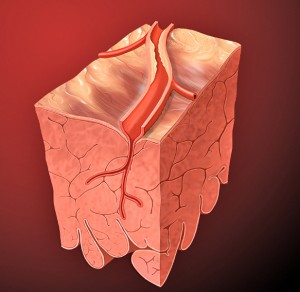
Patrick J. Lynch
According to the World Health Organisation (WHO), cardiovascular diseases killed 17.5 million people in 2012, that’s 3 of every 10 deaths. Of these, 7.4 million people died of ischaemic heart disease and 6.7 million from stroke.
Ischaemic heart disease, stroke, lower respiratory infections and chronic obstructive lung disease have remained the top major killers during the past decade. What’s worse is that since the year 2000, deaths have risen, not fallen. Cardiovascular diseases alone killed 2.6 million more people in 2012 than in the year 2000. So much for the super drugs that are supposed to keep the epidemic of cardiovascular disease under control.
Most common heart disease conditions in alphabetical order:
- Angina Pectoris – chest pain caused by a decrease of blood supply to the heart
- Arrhythmias – an abnormal heartbeat caused by faulty electrical impulses
- Atherosclerosis – hardening or blocking of the arteries
- Cardiac Arrest – heart suddenly stops beating
- Congestive Heart Failure (CHF) – heart cannot pump efficiently to the rest of the body
- Coronary Heart Disease* (CHD) – atherosclerosis within the heart arteries
- Enlarged Heart – can present because of another heart condition
- Heart Attack or Acute Myocardial Infarction (AMI) – blood flow to heart interrupted
- Heart Murmur – abnormal sounds heard during heartbeat cycle indicating a problem
- Heart Muscle Disease/Cardiomyopathydiseases affecting the heart muscle.
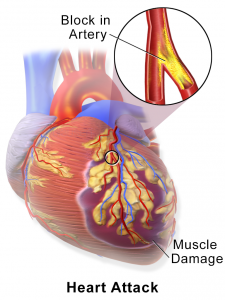
(c) Bruce Blausen - Hypertension (High Blood Pressure) – pressure exerted by blood flow on the arteries
- Mitral Valve Prolapse (MVP) – heart valve does not close properly
- Pericarditis – Inflammation of the pericardium membranes that encase the heart
- Premature Ventricular Contractions (PVC) – extra abnormal heartbeats
- Stroke – blood supply to the brain is interrupted due to arterial rupture or a clot
* Also known as Ischemic Heart Disease or Coronary Artery Disease
So what causes heart diseases?
When the medical professionals talk of heart disease, they often talk about atherosclerosis as being the culprit. Atherosclerosis is a condition where the arteries become restricted due to the build up of plaque, a fatty substance sent by the immune system to repair a perceived damaged area. Inflammation is thought to be the precursor to atherosclerosis. So it is believed that heart disease eminates from chronic inflammation which produces atherosclerosis.
But what causes the inflammation?
Inflammation is how your body copes with an injury like a cut, burn, infection etc.. When injured or infected, your body’s immune response is to send healing compounds to the affected area. The area swells, reddens and the blood clots around the damage. With acute or short term inflammation, the response slowly reduces the damage and the healing process will eventually lead to a full recovery. With chronic inflammation however, the immune response fails to heal the affected area.
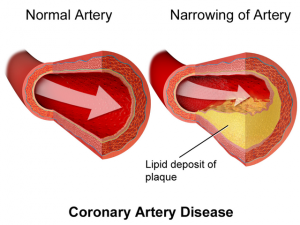
When an artery is damaged or infected, blood cells, proteins, cholesterol, minerals and other compounds are rushed to the area to protect and eventually heal. These agents fix themselves to the artery wall and form a soft substance known as soft plaque. As this plaque is often easily dislodged and damaged, it is known as vulnerable plaque. If the damage is not healed, the body then treats this unstable plaque as a new invader and the immune response is repeated instigating a fresh load of compounds into the damaged area to fight the invading plaque. The vulnerable plaque can then rupture, spilling all its contents into the blood stream where it can thicken the blood and cause clots which can block the arteries.
Modern treatment of heart disease
Because of this plaque problem, the perceived risk that many doctors focus on is cholesterol which is one of the compounds sent to a damaged area of an artery. Apart from changing life style habits like smoking, excessive drinking, eating junk food, not exercising, obesity etc., it is high cholesterol that your doctor will likely concentrate on. Consequently, statins are being prescribed to an overwhelming number of patients, some of which will gain no advantage from taking them at all and could possible suffer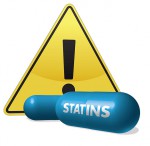 detrimental side effects. This is despite new research which is coming to the conclusion that cholesterol may not be the evil one after all and that statins should not be prescribed to a patient who does not present with heart disease. see my previous post
detrimental side effects. This is despite new research which is coming to the conclusion that cholesterol may not be the evil one after all and that statins should not be prescribed to a patient who does not present with heart disease. see my previous post
What are we missing?
So what’s going on. Why are we suffering chronic inflammation. Why is the immune response not working as it should. What is happening inside our bodies to cause such an epidemic of cardiovascular diseases. What are we missing? Why are we dying in such numbers of these dreadful illnesses?
Think of this
Our body is an amazing biological machine. A good analogy would be comparing it to a car. What do you need for a car to go. You need an engine – our heart. You need wiring – our arteries. Oil would compare to our blood. The computerised systems in a car could compare to our brain. The electronics in a car could be our neurological pathways. But still it won’t go. What’s missing? The fuel. Without enough fuel the car will grind to a halt and stop. It will not go, despite all its working parts.
 Our fuel?
Our fuel?
The fuel for the car is obviously the diesel or petrol. This fuel has been refined from oil and it’s the same with us. Our food and water is our fuel but it has to be changed into energy. The energy is produced in the mitochondria of our many trillions of cells. Each cell
(except red blood cells) has mitochondria within it in various numbers, depending on the activity of the cell. Muscle cells need an abundance of energy with our heart needing the most.
What are mitochondria?
Mg is a cofactor for a substance known as ATP (Adenosine Triphosphate) which is the energy currency of each cell. ATP is the principal product made by our cell’s energy factories or mitochrondria. The more energy needed by that cell, say a heart cell (cardiomyocyte), the more mitochondria it will have, up to around 2000. Mitochondria occupy 20-30% of the volume of cardiomyocytes. Their numbers can significantly (and should be able to) increase in response to cardiac energy needs. The heart is the hardest working organ in the body and it uses copious amounts of energy. That’s why heart muscle has the highest concentration of mitochondria, our energy factories, within it’s cells. Consequently, this means that the heart has and needs the highest amount of Mg ions in the body to be able to activate the ATP molecule.
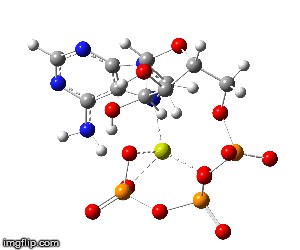
When referring to ATP, most scientists and researchers are talking about the activated and magnesium bound combination known as Mg-ATP. Unfortunately, for convenience sake, the Mg prefix of this compound has been dropped which only serves to conceal it as the most important element of ATP production.
If Mg is not present in enough quantites to activate ATP, then energy production will be compromised. The heart will be starved of its energy and problems will ensue. The human heart cycles around 6kgs of ATP per day!! Without Mg to activate this enzymatic process, the necessary energy will not be produced.
This is a simplification of the complicated biochemical mechanism of ATP. Even so, without Mg, this process will not work which makes Mg a vital nutrient for all life and as Mg cannot be made in the body, it has to come from our food and water. Mg is essential for the energy process within each of our trillions of cells. Mg is the spark of life, without it we die. “ATP (adenosine triphosphate) is present in all the living world. You can think of it as life’s batteries – a substance that can store and release energy back and forth like a switch. But to do so, it needs magnesium. Literally every energy consuming reaction in life involves ATP and thus needs magnesium to proceed.” Mildred S. Seelig MD, MPH, Master, American College of Nutrition.
 In part 2 of this article we will explore in more detail what actually happens in the process of the heart that is dying from lack of fuel. Please comment if you have anything to say. All your views are important and I will always answer.
In part 2 of this article we will explore in more detail what actually happens in the process of the heart that is dying from lack of fuel. Please comment if you have anything to say. All your views are important and I will always answer.
Spread the word!
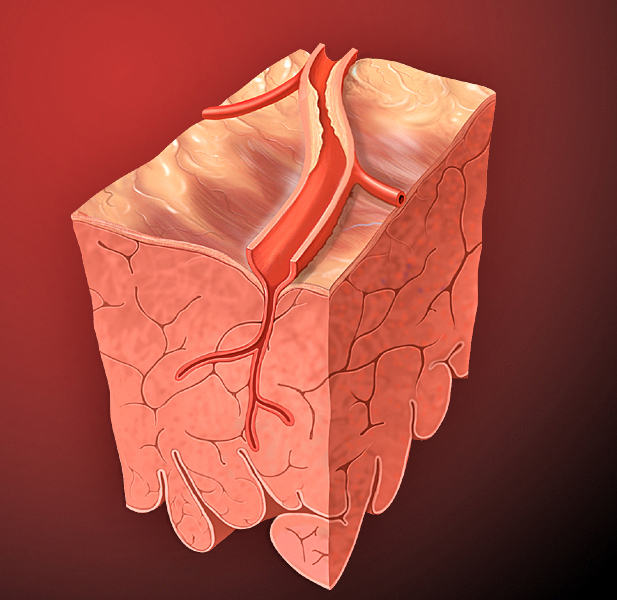
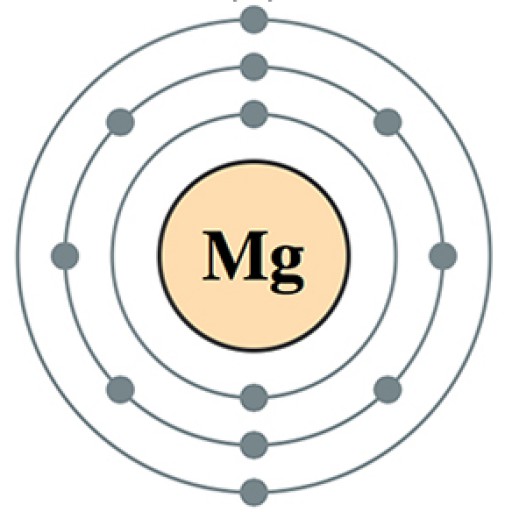
Very interesting reading! I didn’t realize mg played such an important role with the hearts health. Is magnesium something that should be taken daily?
Hi Grant and thanks for reading the post. Yes, you need a constant supply of magnesium because it cannot be made in the body. It’s also used for so many functions so it gets depleted, sometimes in large quantities. Stress is a big depleter of magnesium because of the body’s need for it when adrenaline and other stress hormones kick in. It’s also essential for energy production (ATP), controlling calcium and DNA and RNA health and that’s apart from being a cofactor for hundreds of enzymes. It will also keep your blood pressure stable. This post will give you all the supplements available and their bioavailability and other details. Take magnesium daily and you will be protecting your health now and for your future. Ches
Hi,
I was wondering how much effect exercise has on the health of the heart. I mean I know it has a lot to do with it but I’m curious if enoughexercise can outweigh a poor diet.
I wouldn’t say that I have a poor diet but I do think that it’s a weekness of mine for sure. I struggle to eat healthy on a regular basis. I probably eat healthy half of the time and not so healthy the other half.
That being said, I do get a lot of exercise. I play a lot of sports and I get a lot of cardiovascular exercise. Do you think the exercise I get will keep my heart healthy or will I eventually need to change my diet as well?
Robert
Hi Robert and thanks for reading the post. It certainly is good to keep your heart exercised BUT you need to make sure your heart has the ability to work well for you, you must not be magnesium deficient. If you do strenuous exercise, you need to have plenty of magnesium to keep your energy supplies high. Many a strong, healthy young athlete has succumbed to sudden cardiac death because of a massive depletion of magnesium during hard exercise, see Magnesium and Working Out If you don’t eat junk and/or processed food and stick to a healthy diet with whole foods that haven’t been messed with and you supplement with magnesium, you will be safeguarding your heart health. Try to moderate your calcium intake and don’t take calcium supplements if you eat dairy products. Calcium Supplements for Heart Disease? will explain why. Good health to you. Ches
You can push yourself too hard and cause heart cell death if not taking magnesium and all the b cutes daily. Many ultra marathoners kill their hearts thus way.
Hi Fon, you are replying to Robert Lawrence and SamDal, comments I have not seen so I cannot relate to what these 2 commenters wrote. Even so, as for ‘pushing yourself too hard’ I like to remember how the heart needs Mg for relaxing and Ca for tightening to produce balanced pumping. If just ‘tight’ without ‘relax’ you can understand how the heart can be stopped!
As for your reply to SamDal, one of the problems with olive oil is that people cook with it, the heating of the oil oxidises it. Only use olive oil for cold dishes. The best cooking oil to use is either organic avocado oil or organic coconut oil with avocado having the highest “smoke point’ or tolerance to heat before it oxidises.
You do a very good job at describing what causes heart disease and inflammation. I never knew that plaque was responsible for the narrowing of arteries and subsequent heart attacks. I thought it was just fat deposits in the arteries.
Thank you so much for all of the awesome information. There is so much to learn on this site. Keep up the great work!!
Hi there Bimmerguy and thanks for reading the article. I’m gratified to know that you’ve gained some insight to the cause of heart disease and thanks for the positive comments. I certainly will keep working hard to give as much information to anyone who wants to read it. Magnesium deficiency is a scourge of our times and we all need to take matters into our own hands to keep ourselves in the best health that our genes will allow. Part 2 will follow in a day or two. Ches
Hey, great post!
Though I’m an engineering student, I was able to understand it all: you made it easy!!
It’s incredible how medical treatments and discoveries change the way we see things and solve problems.
Now cholesterol is not the great enemy…
By the way, you say magnesium is vital, we need it to live. My question is: Are there any side effects on consuming too much? (on reasonable doses)
I mean: knowing it can prevent the problem I think the first thought that comes to your mind is: “I’ll make sure to ingest food with magnesium!”
Then, what is your suggestion? Increment those foods in our diets, even consider taking some specific pills, just consider talking with the doctor?
Sorry for the trouble, but you just made me curious, haha
Thanks a lot for the post!
Hi Juan and thanks for reading my post. I’m gratified to know you could understand the article as I do have readers who find my posts a bit heavy going and I certainly don’t want anyone ‘glazing over’.
Yes, magnesium is vital, for all forms of life, not just humans. The only side effect will be laxative if you overdose. The trick with magnesium supplements is to go slow and work up to the level which suits your body. Once you go into ‘laxative’ mode then you know you’ve hit your optimum level. Of course, you need to take into account what food you’ve eaten and whether you’re under stress at the time. If you know you will be stressed, like an interview or doing a presentation, or perhaps meeting the President, a little more magnesium will help you keep calm and clear minded.
Of course, eating foods with a higher level of magnesium is always best, but it won’t be enough in this day and age, especially with the high concentrations of fortification with calcium in foods that we eat. It is the ratio between Ca and Mg which is important. If your calcium intake is much higher than your magnesium then you will be deficient by default! A ratio of 1:1 is optimum but extremely difficult to achieve, especially with food alone.
By all means consult your doctor but there are not many that will even know what you’re talking about. The enlightened doctors are few and far between. Good health to you and yours always, Ches
Great post!
Dr. Caldwell esselstyne is a well known cardiologist and has successfully treated and even reversed heart disease in his patience using a plant based diet.
When told his views of getting people to cut out animal products since they are loaded with saturated fats is “extreme” he said:
“this year in the US alone, 500,000 people will need to get their chest cavities split open and an artery from their leg used by way of heart by-pass surgery. Some people would consider THAT extreme”
hahah, he’s spot on. We don’t like to deal with the consequences of our lifestyle choices these days, do we?
Well written post too – it really is time to take our health more seriously rather than waiitng for something terrible to happen before we wake up.
Hi SamDal and thanks for reading the post. Yes I know of Dr Esselstyne and quite agree with the use of nature rather than drugs to heal the sick body. You’ve hit the nail on the head with lifestyle choices. We are killing ourselves and then our medics and Big Pharma, by way of drugs, speed us on our way! Ches
The good Dr. Has recently reversed his position on this. Stating that excessive polyunsaturated olive oil and the Mediterranean diet is a driver of heart disease. Kudos to him for admitting the truth as the data has come out
I find this post very educative. Although this is a complicated subject, I managed to grasp something in my own layman’s world. It’s pointing at the shortcomings of modern medicine where doctors mainly focus on cholesterol as the root cause of heart disease. Although doctors pay attention to the importance of changing bad habits like smoking and drinking, they still miss out the major cause. The analogy between the heart and a car has helped me. I begin now to realise that everything revolves around what we eat.
Thank you Zegu for reading the post and I know the subject is rather complex and involved but I’m pleased you did find it informative. There is a fine line between too much simplification and losing the science behind the subject. Thank you for persevering! Ches
I know a lot of people with heart diseases and it’s unfortunate. I accidentally got on this page and found a lot of useful information. It’s so important to educate people on this life changing topics. I like how you explained it on fuel example. makes it much easier. Thank you!
Thanks for reading the post Alisa and I hope you found some value in the information. Ches